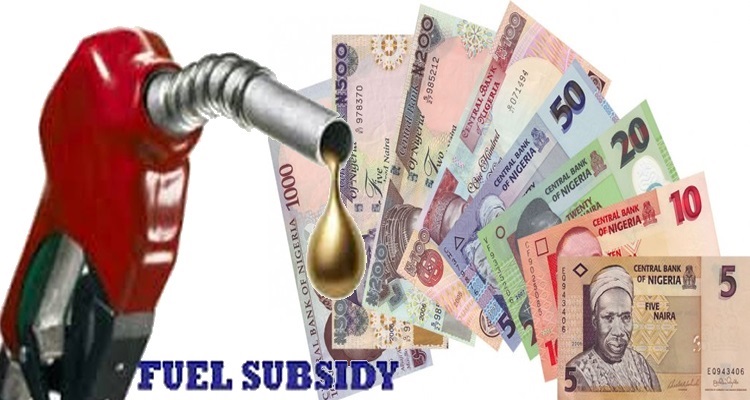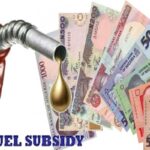The postponed negotiation between the labour unions and the new Tinubu government holds immense significance in quelling the turbulent storm of socioeconomic challenges faced by workers and the Nigerian population.
The challenge, attributed to fuel subsidy removal, adds to the existing hardships inherited from the previous government. Like a stormy sea, the focus on removing fuel subsidies sends powerful waves of impact throughout the macroeconomy, capable of causing upheaval and unrest.
In this fierce scenario, the intervention of the labour unions emerges as the lighthouse, guiding the negotiation process towards a safe harbour of balance and equity.
Although the die is cast, the Tinubu government must start implementing its programmes to cushion the economic consequences of the subsidy removal. The choice should be about removing it immediately with the potential impact of one huge economic recession, gradually removing it while managing mild recessions over time, or walking back on the announcement. After all, the United States still subsidises oil – a programme started over a decade ago – ranging from incentives for domestic production to write-offs and deductions tied to foreign production and income.
Strike: NLC Acting Labour Party’s Script To Destabilise Tinubu’s Govt – Onanuga
FOSLA Academy to represent Nigeria at World Secondary Schools tourney
Of course, many suggest that Tinubu and his think tanks carefully planned the removal—with clear objectives—believe this at your own peril. Regardless of presumptions, this is the time for action, not cheap talk, if they truly want to avoid another economic turbulence, as in the last government. One practical lesson to avoid is how the past government behaved towards subsidy removal – the dithering and the lack of transparency on the spending.
Another cautionary note for the government is to desist from making unsubstantiated justifications for removing fuel subsidies to gain nationalist support, like saying Nigeria is subsidising its neighbouring countries. Such a statement requires legal proof, and lack of it can hamper bilateral relations.
All issues regarding the smuggling of petroleum products should be addressed against the agencies that protect the borders, the petroleum marketers that engage in the smuggling activity, and the regulators who oversee the marketers.
Fuel subsidy removal has significant macroeconomic implications in Nigeria, especially considering the escalated increase in payments made during the Buhari administration. The previous government’s extensive spending on fuel subsidies has imposed substantial fiscal burdens, distorted price signals, and misallocated resources in the country. The lack of transparency in the spending has raised concerns about widespread misappropriation, which may require time to uncover and rectify.
However, eliminating fuel subsidies allows the government to redirect the saved funds towards more productive sectors, aligning with the current administration’s objectives. This reallocation can stimulate economic growth, enhance productivity, and improve overall welfare in Nigeria.
In light of Nigeria’s current fiscal burden and mounting debt profile, proponents of free market economics assert the increasing relevance of removing fuel subsidies and allowing market forces to determine fuel prices. This approach empowers market dynamics to reflect the actual costs associated with fuel production, transportation, and distribution, thereby fostering efficient resource allocation.
Removing subsidies makes it possible to discourage wasteful consumption and stimulate market competition, enhancing overall economic efficiency. The market-oriented strategy can also breathe new life into the country’s underutilised refineries, creating competition for the Dangote Refinery, bolstering domestic fuel production and diminishing dependence on imports. Such outcomes are pivotal for sustainable long-term growth, relieving fiscal pressures, and propelling Nigeria towards a more resilient economic trajectory.
Despite Nigeria’s fiscal burden and rising debt profile, removing fuel subsidies and relying on market forces to determine fuel prices may worsen economic challenges and intensify inequality.
Regardless of the government’s choice of whether to remove the subsidy immediately or do it gradually, we must accept that fuel subsidies serve as a safety net for low-income individuals and micro, small and medium enterprises (MSMEs) that rely heavily on affordable energy costs.
Removing subsidies has led to an immediate increase in fuel prices, burdening vulnerable populations and exacerbating income disparities. Moreover, a market-oriented approach may not necessarily lead to efficient resource allocation, as monopolistic practices and speculation can influence market forces.
Therefore, the government must use the borrowed $800 million World Bank loan for targeted social welfare programmes, review the minimum wage and design comprehensive economic reforms that address underlying structural issues important to achieve sustainable development and equitable outcomes. MSMEs deserve special attention due to their significant role in generating employment opportunities and acting as catalysts for economic growth and social development.
With the postponed meeting between the government and the labour union scheduled for June 19, it is imperative to emphasise the significance of labour unions’ intervention in ensuring fair distribution amid the removal of fuel subsidies.
The government must approach the negotiations in good faith, recognising the crucial role of labour unions in safeguarding the rights and interests of workers. Through constructive dialogue and negotiation, labour unions can advocate for appropriate wage adjustments, establish social safety nets, and implement mechanisms to mitigate the immediate impact on low-income earners.
By upholding the principles of fairness and equity, the government can ensure that the benefits of economic reforms are shared equitably across the population, creating a more inclusive and sustainable society.
In this negotiation between the labour unions and the new Tinubu government, the potential for a peaceful and harmonious resolution emerges, akin to the soothing melody that marks the end of a tumultuous symphony. The labour unions, acting as the guiding voices of hope, have the power to orchestrate fair wage adjustments and social safety nets, ensuring that the burdens of reform are distributed equitably among the people and the economy. With their intervention, the tune is set right for workers and the broader Nigerian society, heralding a future filled with promise and shared prosperity.

 Join Daily Trust WhatsApp Community For Quick Access To News and Happenings Around You.
Join Daily Trust WhatsApp Community For Quick Access To News and Happenings Around You.

